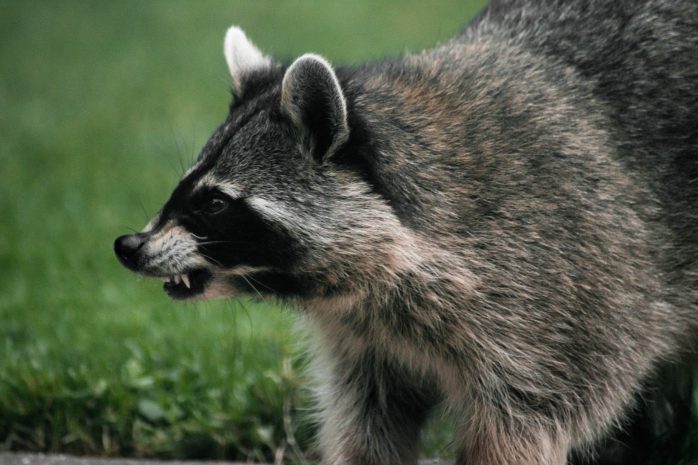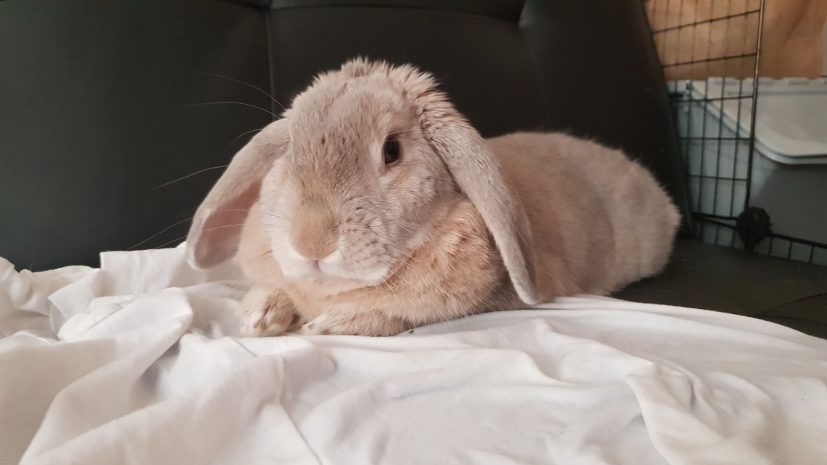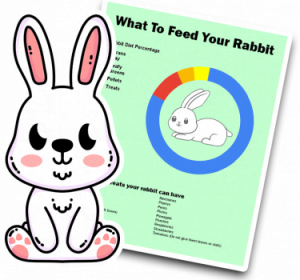
Raccoons are intriguing creatures known for their distinct facial markings and dexterous paws. However, their captivating appearance may often overshadow their eclectic dietary preferences, raising many questions. Among these, one query that often stirs intrigue is, “Do Raccoons Eat Rabbits?”
Before diving into this intriguing aspect, it’s essential to understand both these animals. Raccoons and Procyon lotor are opportunistic omnivores with a diet that changes based on their environment and the seasons. They feed on fruits, vegetables, insects, rodents, and even rabbits.
On the other hand, rabbits, part of the Leporidae family, are small mammals with long ears, fluffy tails, and strong, large hind legs. Known for their rapid reproduction rate, they are an important part of the food chain and serve as prey for various predators, including raccoons.
This article will delve into the predation of rabbits by raccoons, shedding light on the intricacies of their relationship.

Yes, raccoons do eat rabbits. Raccoons are not obligate carnivores (Only meat eaters), but they won’t turn down a rabbit if one happens to cross their path. The consumption of rabbits by raccoons is an example of opportunistic feeding, where the raccoon takes advantage of the situation at hand.
Raccoons are stealthy hunters, employing various techniques to capture their prey, including stalking and pouncing. They are known to consume the entire rabbit, making no waste.
Safeguarding rabbits becomes a necessity in areas where raccoons are prevalent, especially for pet owners. Here are some effective ways to protect rabbits from raccoons:
Remember, while it’s not possible to guarantee 100% protection, taking preventive measures can significantly reduce the chances of raccoons preying on rabbits.

Characterized by their nocturnal and opportunistic nature, raccoons are skilled predators playing a significant role in their ecosystem. Their diet varies greatly, from plants to animals, depending on their habitat and the season.
Raccoons are adaptable and thrive in diverse environments, including forests, marshes, and urban areas. This adaptability influences their hunting strategies, with more opportunistic hunting prevalent in human-populated areas.
The question is, how does the rabbit, a common prey, fit into the dietary patterns of these crafty mammals?
Rabbits are a common prey species for various predators, raccoons included. Their physical characteristics and behaviors make them attractive food sources.
While rabbits are known for their speed and agility, these are often not enough to protect them from predators. Their abundance and their rich in proteins make them a viable option for many predators.
But why would raccoons, known for their diverse diet, choose rabbits as prey? Let’s find out.
Raccoon predation can have a significant impact on local rabbit populations. By controlling the rabbit population, raccoons help maintain a balanced ecosystem.
However, factors such as habitat loss, disease, and human intervention also influence rabbit populations. The role of raccoons in these dynamics is complex and varies based on local conditions and the presence of other predators.

The interaction between raccoons and rabbits can vary significantly based on their environment. In forests and grasslands, raccoons use their keen senses and the cover of night to stalk and catch rabbits.
In urban and suburban areas, raccoons have adapted to human presence. They often raid gardens and yards for food, where rabbits can be easy prey.
While raccoons do play a part in preying on rabbits, they are not the only predators rabbits need to worry about. Other common predators include foxes, hawks, eagles, and coyotes. Each predator has its unique hunting style and impacts rabbit populations differently.
Human interaction plays a significant role in raccoon and rabbit dynamics. As human settlements expand into natural habitats, interactions between raccoons, rabbits, and humans become more common.
These interactions can sometimes lead to conflicts, such as raccoons hunting rabbits in domestic settings. These scenarios stir various emotions and concerns, leading to further research and initiatives to better manage and understand this predator-prey relationship.

By entering your email address you agree to receive emails from Cottontailclub. We'll respect your privacy and you can unsubscribe at any time.